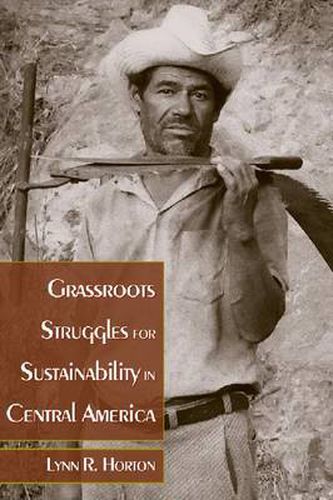Readings Newsletter
Become a Readings Member to make your shopping experience even easier.
Sign in or sign up for free!
You’re not far away from qualifying for FREE standard shipping within Australia
You’ve qualified for FREE standard shipping within Australia
The cart is loading…






Drawing on the testimony of leaders and residents of three communities in Nicaragua, Costa Rica, and Panama, Horton explores grassroots assumptions, values, and practices of sustainable development and, in particular, the ways in which they overlap with or challenge international financial institutions’ discourse of sustainability. With a comparative, empirical approach, Horton also analyses dominant practices linked to sustainable development – neoliberal reforms, project interventions, and environmental protection. She reveals how these practices support or undermine economic, cultural, and political opportunities for the rural and indigenous poor and impact these communities’ advancement of their own visions of sustainability. Finally, the author explores processes of empowerment that enable communities to articulate and put into practice local visions of sustainability, which contribute toward broader social and structural transformations. GRASSROOTS STRUGGLES FOR SUSTAINABILITY IN CENTRAL AMERICA will interest sociologists, anthropologists, and others who study the theory and practice of sustainable development.
$9.00 standard shipping within Australia
FREE standard shipping within Australia for orders over $100.00
Express & International shipping calculated at checkout
Drawing on the testimony of leaders and residents of three communities in Nicaragua, Costa Rica, and Panama, Horton explores grassroots assumptions, values, and practices of sustainable development and, in particular, the ways in which they overlap with or challenge international financial institutions’ discourse of sustainability. With a comparative, empirical approach, Horton also analyses dominant practices linked to sustainable development – neoliberal reforms, project interventions, and environmental protection. She reveals how these practices support or undermine economic, cultural, and political opportunities for the rural and indigenous poor and impact these communities’ advancement of their own visions of sustainability. Finally, the author explores processes of empowerment that enable communities to articulate and put into practice local visions of sustainability, which contribute toward broader social and structural transformations. GRASSROOTS STRUGGLES FOR SUSTAINABILITY IN CENTRAL AMERICA will interest sociologists, anthropologists, and others who study the theory and practice of sustainable development.